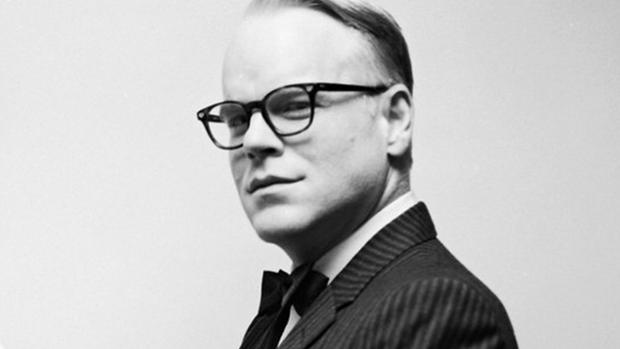Philip Seymour Hoffman: An appreciation
On Friday, fellow actors from Broadway and Hollywood attended a private funeral service in New York City for Philip Seymour Hoffman, the Oscar-winning actor who was found dead last Sunday, while all around the country admirers of Hoffman's work continue to try to make sense of his loss. You can count our film critic David Edelstein among them:
One week ago, Philip Seymour Hoffman was found dead in his New York apartment. Many of us are still grieving, still cursing, still asking, "Why?"
Though the obvious answer is: He was a heroin addict.
He'd apparently been clean and sober 23 years, started drinking again at a 2012 wrap party, and then, as addicts say, the dragon got him and didn't let go.
But there might be other answers, other ways to look at his tragic death at age 46 in light of what made him one of our greatest actors.
I got an inkling when I met him for a newspaper interview in 2006, after the release of "Capote," the movie in which a big guy with a big head and a big croaky voice made you think he was a little guy with a little head and a squeaky voice.
But there was something beyond Olympian mimicry at work. Hoffman said he'd fought with the director in the editing room to show Truman Capote in the most unflattering light possible.
Now, 99 percent of actors fight to come off more, not less likable. That's their vanity.
Hoffman's vanity was a kind of anti-vanity. He homed in on the grotesque: he thought you'd have more empathy for people who were reprehensible because down deep, he said, we all know how flawed we are.
That anti-vanity emboldened him. It made him so brave.
Regard his riveting
smugness as a rich boy in "The Talented Mr. Ripley" . . .
See his sweaty desperation as an addict in the vicious thriller, "Before the Devil Knows You're Dead" . . .
Marvel at his defiant disheveled-ness as a spy who knows he's better than anyone else in "Charlie Wilson's War" . . .
Watch how he captures a possibly pedophile priest's obscene ease with himself in "Doubt" . . .
So many brilliant
turns, though my favorite is his least grotesque: a son coping with a demented
dad in "The Savages."
Hoffman was both adored and feared. Off-screen, he was funny, curious, generous, supportive, BS-free. In the throes of work, he could be brooding and unapproachable.
My guess is he was pretty hard on himself. Perhaps that made him a good candidate for addiction -- and the dragon that would deliver oblivion. Perhaps.
Now we curse that dragon, but give thanks that for so long Philip Seymour Hoffman used his demons to help us see with such incredible vividness our own.
